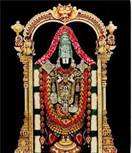The Spiritual Import of the Mahabharata and the Bhagavadgita : Ch-2. Part-3.
2: Challenges of the Spiritual Seeker-3
The jiva principle within us has the double characteristic of mortality and immortality. We are mortals and immortals at the same time. It is the mortal element in us that causes sorrow when it comes in contact with the immortal urge, that seeks its own expression in its own manner. There is a tremendous friction, as it were, taking place between the subjective feelings and the objective cosmos. No one can know the strength of the universe. The mind cannot imagine it, and we are trying to overstep it. We can stretch our imagination and try to bring to our memories what could be the magnitude of this task. We as individuals, as we appear to be, are girding up our loins to face the powers of the whole universe—a single Arujna facing the entire Kaurava forces, as it were.
Yes, Arjuna had the strength, and also he had no strength. If Arjuna stood alone, he could be blown off in one day by a man like Bhishma. Well, Duryodhana pleaded every day before Bhishma and cried aloud, “Grandsire, you are alive, and even when you are alive, thousands and thousands of our kith and kin are being massacred. How can you see it with your eyes? We are depending upon you, we have laid trust in you—and with all this, this is what is happening.” Bhishma’s answer was, “Don’t bother; tomorrow, let me see.” Many “tomorrows” passed and there were massacres on the side of the Kauravas. Again Duryodhana came to plead, “How is it that while you are alive this could happen?” He gradually lost faith in Bhishma and wanted to replace him with someone else like Drona or Karna, if possible, but he could not speak these words. He dared not speak to this terrible old man, so instead he tauntingly expressed his misgivings concerning the future of this great engagement in war. “But there are some faults,” said Bhisma, “which I am not able to face.” This will come a little later.
I am just giving an outline of the situation, which goes deeper then the ordinary psychological level. It touches the borderline of the spirit, and yet has not entered into the universal spirit. That situation is a terrible situation indeed, where we have lost everything that we can call our own, and lost our grip and hold over things which are near and dear to us, yet have lost also our grip over that which we are seeking. This is exactly the condition of being left adrift at sea. “I am at sea,” as they say, which means there is no succour. We are just sinking because there is no support at all from anywhere. It is not true that there is no support, but it appears as if we are sinking on account of a contradiction between the values of the individual and the values Universal. We are still wedded to the calculative spirit of the individual sense, which assesses even the Absolute God Himself in terms of individual benefits and rewards. It is impossible to get out of our brains the idea of reward and pleasure.
To be continued ...





Comments